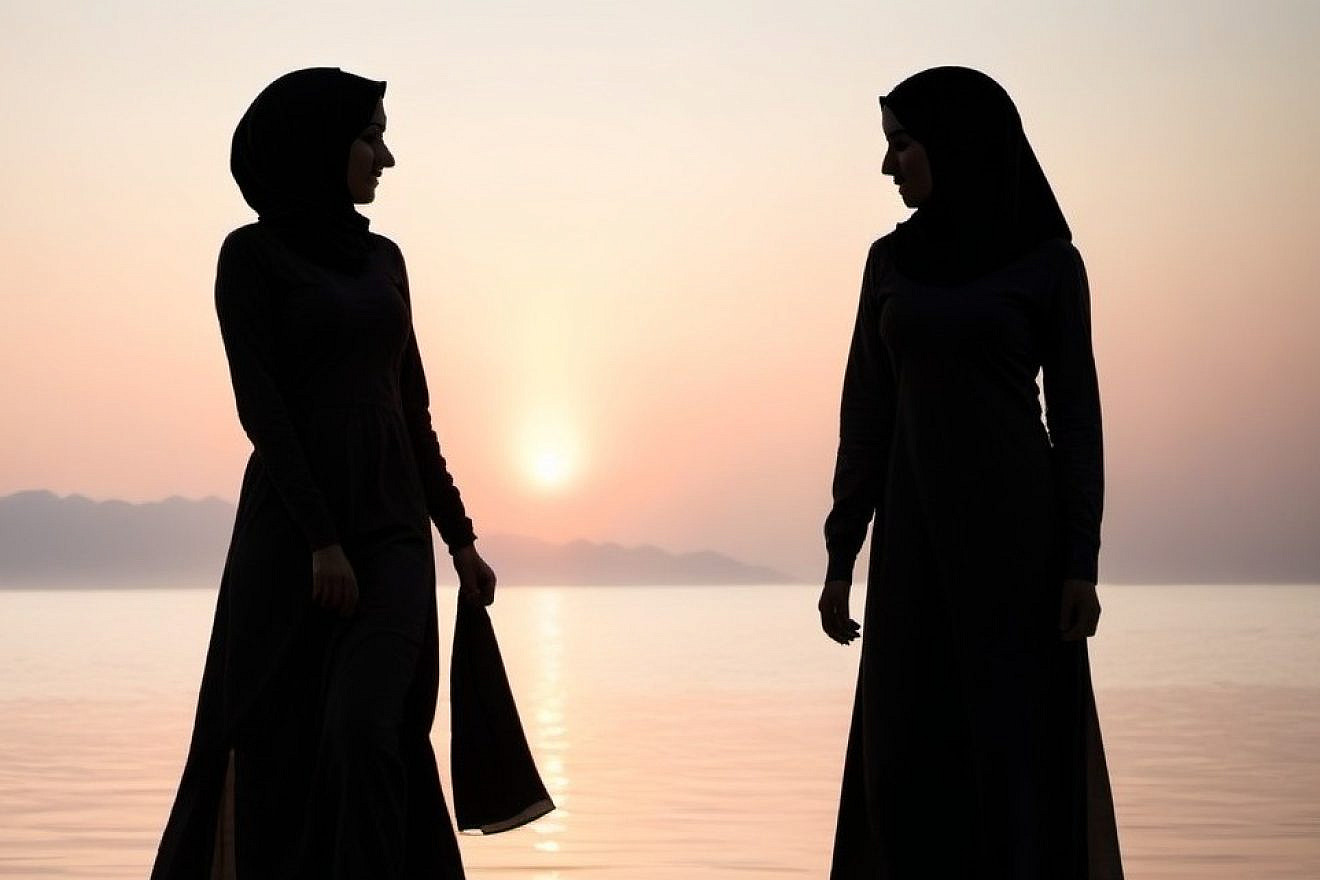Dressed in all their ethnic finery, two heroic, religious, anti-Islamist Muslim women—Anila Ali from Pakistan and Soraya Deen from Sri Lanka—came to see me. They are beautiful women. Anila is a teacher and a community leader. Soraya is a lawyer. Both describe themselves as Muslim philanthropists. They met in 2011 while doing interfaith work in the United States.
Since she visited southern Israel in the aftermath of the Oct. 7 massacre, Soraya has been speaking and writing about Israel and about how important it is for Muslims to speak the truth about Israel and the Jews and to defend them against the wave of demonization well underway.
Anila just spoke at the United Nations (video begins at 27:41) at an event sponsored by the Israeli mission to the U.N. She joined May Golan, Israel’s Minister of Social Equality and the Advancement of the Status of Women; Israeli Ambassador Gilad Erdan; and Jaqueline Cacho, an Oct. 7 survivor.
To attend, one had to register. Three pro-Palestinian protestors, all women, broke in but were escorted out because they had not registered.
Soraya and Anila also spoke at Young Israel of Jamaica Estates, an Orthodox synagogue in Queens, with Tatiana Kotlyrenko as the moderator. They were joined by Farhana Khorshed and Zebunnesa Zeba Zubair. Their subject? “Muslim Women Speak. Standing Together to Combat Antisemitism and Calling for the Immediate Release of All the Hostages.”
The words, ideas and bravery of these women, as well as their decision to visit, were a very welcome relief to me given the almost non-stop zombie armies of pro-Palestinian jihadists that are seemingly everywhere; these angry swarms in keffiyehs and masks, drumming, clanging and chanting. (Don’t these people have jobs? Family responsibilities? Are they all paid by Iran and George Soros?)
Over the last few days, the jihadists marched on what used to be the World Trade Center. Similar swarms tried to block access to the Oscar ceremony in Los Angeles. On International Women’s Day, they occupied Union Square. And there they were, at a New Jersey synagogue in Teaneck.
Similar demonstrations also took place at a New York City art gallery because an Israeli artist’s work was being shown. Other swarms are taking place across America, blocking highways in Richmond, Virginia, and Cleveland, Ohio.
A few weeks ago, pro-Palestinian demonstrators flooded the New York City subways to confront New York Gov. Kathy Hochul, who was slated to speak.
Anila was born in Karachi. Her great-grandfather served as the Prime Minister of Kashmir. Her father was a diplomat and a journalist. Her grandmother was an author and secretary of the Muslim League.
Anila had to, or rather chose, to leave Pakistan when jihadists increasingly began to limit women’s rights. She comes from a long line of matriarchs who helped found Pakistan; who set up colleges for women and much else. Her father always encouraged her. She told me, “Pakistan is not the country I once knew and grew up in. It changed.”
She traveled to Saudi Arabia but had to leave because “this was before they began lifting all the terrible restrictions on women.” Ironically, Anila had to leave London too as it became more intolerant towards Western ideals and “infidels”—especially Jews.
Anila asked me a poignant question, one with which I’m quite familiar: “Can you imagine how I feel? Safer with Jews and Christians right now than I do with increasingly radicalized Muslims? Most of these mullahs do not know as much about Islam and about the prophet as I do. And yet, based on ignorance, I keep getting thrown out of all my groups. Now Western liberals also view me as bad or as wrong because I am standing with Israel.”
I ask both women: “Do you really think that you can organize an effective resistance movement among Muslims? In time to avert the next world war? And before Iran, God forbid, destroys Israel?”
Soraya and Anila both tell me: “While we may be individually strong, we are collectively powerful. We are making changes every day, finding souls that are ready for freedom. We must set the example. I don’t know why the Palestinians are still playing victims. We all have to move on.”


























